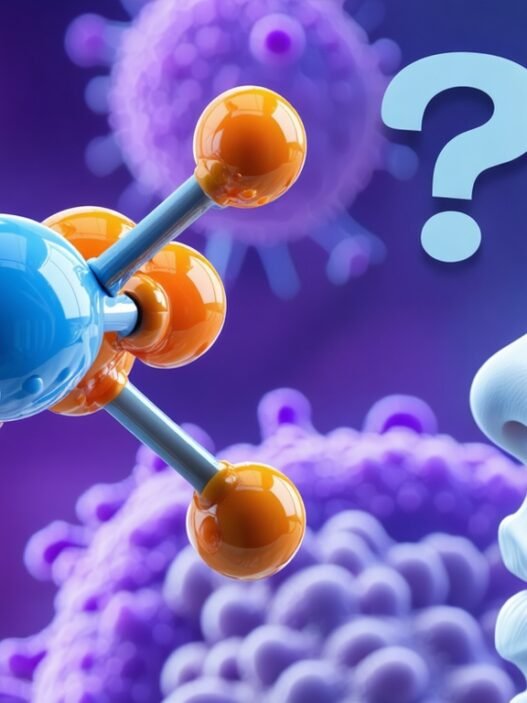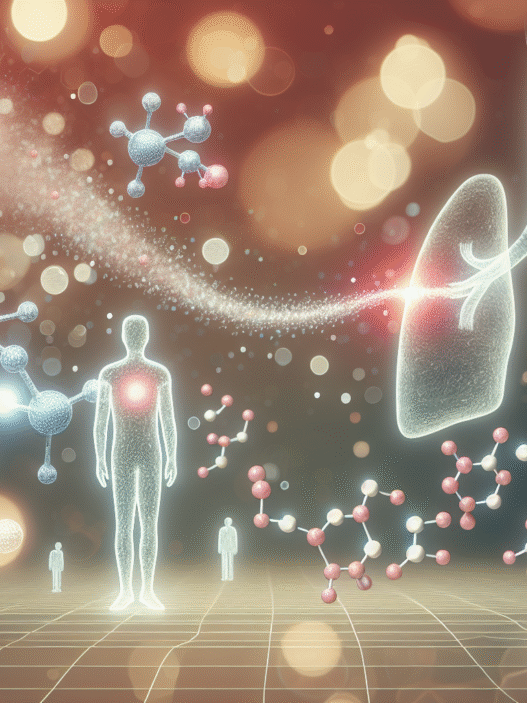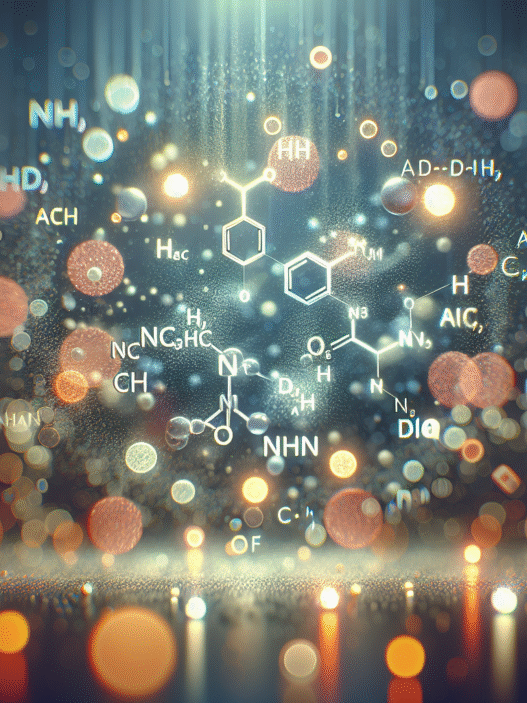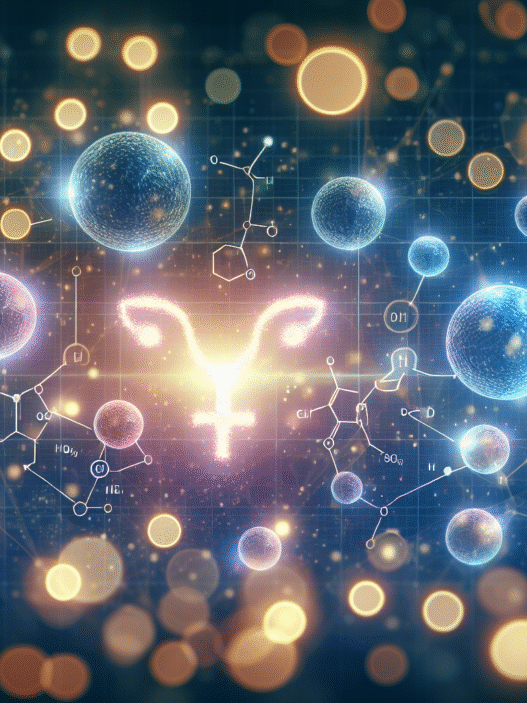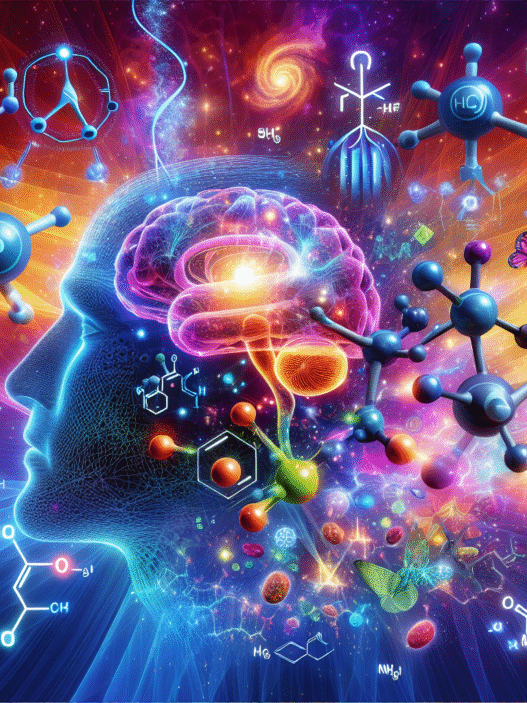Understanding N-Acetyl Cysteine (NAC)
Introduction to NAC
N-acetylcysteine (NAC) is gaining attention for its multifaceted benefits in health and longevity. This compound acts as a precursor to glutathione, one of the body’s most potent antioxidants. With its ability to combat oxidative stress, NAC has been recognized for its potential in improving liver health, supporting detoxification, and promoting overall well-being. It is particularly relevant for individuals interested in longevity and those concerned about liver function.
NAC is noted for its role in various therapeutic applications, including mental health disorders, where it has shown promising results as a treatment for addiction, schizophrenia, and bipolar disorder (PubMed Central). Understanding NAC’s mechanisms allows individuals to appreciate why it might make them feel better, addressing the question: why does NAC make me feel so good?
Mechanism of Action
The primary mechanism through which NAC exerts its benefits is by boosting the levels of glutathione in the body. Glutathione plays a critical role in cellular defense against oxidative stress by neutralizing harmful free radicals. The increase of glutathione concentration due to NAC can potentially mitigate the risk of developing health issues such as heart disease, diabetes, and other health conditions attributed to oxidative damage.
NAC also exhibits anti-inflammatory properties, which can further enhance its effectiveness in managing various health conditions. By reducing the levels of pro-inflammatory cytokines like tumor necrosis factor-alpha (TNF-α) and manipulating nuclear factor kappa B (NF-κB) activity, NAC contributes to a more balanced inflammatory response.
| Mechanism | Function |
|---|---|
| Glutathione Precursor | Increases intracellular glutathione levels for antioxidant activity |
| Antioxidant Properties | Eliminates harmful free radicals and reduces oxidative stress |
| Anti-inflammatory Action | Lowers pro-inflammatory cytokines and balances inflammation |
Overall, NAC’s ability to penetrate the blood-brain barrier allows it to offer neuroprotective and pro-neurogenic advantages, making it a valuable component in the approach to brain health and psychiatric disorders. This combination of actions is what contributes to the positive feelings many individuals experience when taking NAC.
For further exploration of NAC’s benefits, visit our article on what is NAC N-acetyl cysteine used for?.
Benefits of NAC on Brain Health
N-Acetyl Cysteine (NAC) offers several advantages for brain health, primarily due to its role in increasing glutathione levels and its neuroprotective effects.
NAC and Glutathione Levels
NAC is well-known as a precursor to glutathione, one of the most vital antioxidants in the body. It plays a significant role in detoxification and helps combat oxidative stress. By boosting glutathione levels in the brain, NAC aids in enhancing the brain’s antioxidant defenses and reduces oxidative damage, which is associated with various neurological disorders.
When NAC is ingested, it is converted into cysteine, thereby promoting the synthesis of glutathione. This process is crucial because the production rate of glutathione is often limited by the availability of L-cysteine. Increasing L-cysteine through NAC supplementation leads to higher brain glutathione levels, which can enhance resilience to oxidative stress and improve overall brain function.
| Effect of NAC on Glutathione Levels | Description |
|---|---|
| Increases antioxidant defenses | Reduces oxidative stress linked to brain disorders |
| Supports detoxification | Enhances the brain’s ability to eliminate toxins |
| Improves brain function | Boosts cognitive performance and memory |
Neuroprotective Effects
NAC demonstrates various neuroprotective effects, making it a valuable agent in the treatment and prevention of neurological disorders. Research indicates that NAC can:
-
Protect Against Neurodegenerative Diseases: NAC has shown promise in conditions such as Alzheimer’s and Parkinson’s diseases by protecting neurons from oxidative damage. For instance, it can counteract memory loss associated with aging and restore mitochondrial activity, which is critical for neuronal survival (PMC).
-
Mitigate Neuropathic Pain: NAC has been effective in inhibiting matrix metalloproteinases (MMPs) and releasing inflammatory cytokines, contributing to pain relief in neuropathic pain models.
-
Reduce Inflammation: NAC’s anti-inflammatory properties help in mitigating chronic inflammation, which is implicated in various psychiatric and neurodegenerative disorders. By reducing inflammatory markers in the brain, NAC can contribute to improved mental health and cognitive function.
-
Support Recovery from Ischemic Events: NAC has been shown to protect brain tissue following ischemic strokes, reducing infarct volume and neurological deficits.
The neuroprotective attributes of NAC are particularly beneficial for those concerned about brain health, longevity, and detoxification. Its ability to enhance glutathione levels and protect neuronal integrity underscores its potential in maintaining cognitive function and overall brain health.
For those interested in learning more about the uses and benefits of NAC, refer to our article on what is nac n-acetyl cysteine used for?.
NAC’s Role in Psychiatric Disorders
N-Acetyl Cysteine (NAC) has garnered attention in recent years for its potential benefits in treating various psychiatric disorders. Researchers are exploring NAC’s effectiveness in conditions such as addiction, schizophrenia, and bipolar disorder, revealing promising insights into its possible therapeutic applications.
Addiction Treatment
NAC has been investigated for its utility in treating several forms of addiction, including dependence on marijuana, nicotine, and cocaine. Studies indicate that NAC may help reduce withdrawal symptoms and cravings, thereby aiding recovery (PubMed Central). The mechanism behind this benefit appears to involve NAC’s ability to modulate glutamate levels in the brain, which can influence mood and cravings.
| Substance | NAC Effect |
|---|---|
| Marijuana | Reduces cravings and withdrawal symptoms. |
| Nicotine | Helps in decreasing the urge to smoke. |
| Cocaine | May lessen the impact of addiction-related cues. |
Schizophrenia and Bipolar Disorder
NAC’s therapeutic potential extends to serious mental health conditions like schizophrenia and bipolar disorder. Research suggests that NAC could improve symptoms associated with these disorders, contributing to enhanced mood stability and cognitive functioning (PubMed Central). Its role may be linked to its antioxidant properties and ability to counteract oxidative stress, which is often implicated in the pathophysiology of these conditions.
| Disorder | Potential Benefits of NAC |
|---|---|
| Schizophrenia | Alleviates positive and negative symptoms; may support cognitive function. |
| Bipolar Disorder | Stabilizes mood and reduces the frequency of episodes. |
Given its well-established safety profile and excellent tolerability, NAC is emerging as a valuable adjunct in psychiatric treatment plans (PMC). For individuals seeking to enhance their emotional well-being, understanding “why does NAC make me feel so good?” can lead to insightful discussions with healthcare providers about its benefits.
In addition to its psychiatric benefits, it’s essential for users to be aware of the possible side effects of NAC, which can include gastrointenstinal symptoms like nausea and vomiting. For more information about safety, visit what are the negative side effects of nac?.
NAC’s multifaceted role in addressing psychiatric conditions underlines its potential for improving mental health and overall quality of life.
NAC’s Impact on Oxidative Stress
N-Acetyl Cysteine (NAC) is recognized for its significant influence on oxidative stress, contributing to better health outcomes through its antioxidant properties and ability to reduce inflammation.
Antioxidant Properties
NAC plays a vital role in restoring glutathione (GSH) levels, which is the primary endogenous antioxidant responsible for maintaining oxidative balance in cells. By helping the body produce more glutathione, NAC assists in eliminating cell-damaging free radicals. These free radicals can lead to oxidative stress, which is associated with various health issues, including aging and chronic diseases. Studies have highlighted that improving glutathione levels can enhance cellular health and provide protective benefits against oxidative damage.
| Feature | Impact |
|---|---|
| Antioxidant function | Eliminates free radicals |
| Glutathione restoration | Restores cell balance |
| Cellular protection | Guards against oxidative stress |
Reduction of Inflammation
NAC demonstrates significant anti-inflammatory properties linked to oxidative pathways. This can be especially beneficial in managing conditions exacerbated by inflammation, such as psychiatric disorders. The reduction of inflammation may contribute to NAC’s effectiveness in alleviating symptoms associated with these conditions. The compound’s capacity to control inflammatory processes underscores its potential as a therapeutic agent in health maintenance and disease prevention.
| Benefit | Description |
|---|---|
| Anti-inflammatory | Helps mitigate inflammatory responses |
| Role in mental health | Potentially supports mental wellness |
| Chronic disease aid | May assist in managing inflammation-related disorders |
The balancing effect of NAC on oxidative stress is compelling for individuals concerned about liver health, detoxification, and those seeking longevity. For further insights on the benefits of NAC, including its role in liver recovery, visit our comprehensive guide on what is NAC N-acetyl cysteine used for?.
NAC’s Potential in Treating Medical Conditions
N-Acetyl Cysteine (NAC) has garnered attention for its potential benefits in various health areas, particularly regarding liver and kidney function as well as chronic lung diseases.
Liver and Kidney Function
NAC supports liver and kidney health primarily through its role in boosting levels of glutathione, a potent antioxidant that helps eliminate cell-damaging free radicals. This action may reduce the risk of health conditions, including liver and kidney damage (WebMD). Notably, NAC has been scientifically validated for its effectiveness in treating acetaminophen overdose. When administered within eight to 10 hours of overdose, NAC can accelerate the breakdown of acetaminophen and may help prevent significant liver or kidney damage.
| Function | Mechanism | Benefits |
|---|---|---|
| Liver | Increases glutathione levels | Reduces risk of liver damage from toxins |
| Kidney | Assists in detoxification processes | Enhances kidney function by promoting toxin breakdown |
However, in patients with severe liver injury or end-stage renal disease, NAC’s pharmacokinetics can be altered, resulting in reduced clearance and impacting systemic exposure. Close monitoring is advised for individuals in such conditions.
Chronic Lung Diseases
NAC may also be beneficial in treating chronic lung diseases by reducing airway inflammation, which can lessen future flare-ups. Its antioxidant properties contribute to improved lung function by combating oxidative stress that can damage lung tissue. This makes NAC a potential adjunct therapy for conditions like chronic obstructive pulmonary disease (COPD) and asthma.
The table below summarizes the potential benefits of NAC on chronic lung diseases:
| Condition | Potential Benefits |
|---|---|
| COPD | Reduces mucus production, enhances lung function |
| Asthma | Alleviates airway inflammation, improves respiratory control |
While these findings are promising, further research is necessary to fully understand the implications of NAC supplementation in chronic lung diseases and to establish definitive treatment protocols.
For those curious about the broader implications of NAC on health, including whether it contributes to overall well-being, information can be found on the query, why does NAC make me feel so good?. Whether seeking to improve liver health, enhance kidney function, or support respiratory health, NAC presents a multifaceted approach to well-being.
NAC and Insulin Resistance
N-Acetyl Cysteine (NAC) has gained attention for its potential effects on insulin resistance, a condition where the body becomes less responsive to insulin. This section will explore how NAC contributes to blood sugar control and its effects on insulin sensitivity.
Blood Sugar Control
Research indicates that NAC may play a beneficial role in balancing blood sugar levels, particularly for individuals experiencing insulin resistance. It has shown promise in aiding blood sugar regulation and hormonal balance, especially in those with conditions like polycystic ovary syndrome (PCOS) WebMD. By improving metabolic processes related to fat storage and hormone processing, NAC may help maintain stable blood sugar levels, contributing to overall health.
| Condition | Impact of NAC |
|---|---|
| Insulin Resistance | Aids in blood sugar stability |
| PCOS | Improves hormone balance and insulin sensitivity |
Effect on Insulin Sensitivity
NAC has been observed to enhance insulin sensitivity, which is crucial for effective glucose metabolism. Improved insulin sensitivity allows the body to utilize glucose more efficiently, reducing the risk of developing type 2 diabetes and other metabolic disorders. The antioxidant properties of NAC, which stimulate the synthesis of glutathione, play a role in reducing oxidative stress. This oxidative stress is often linked to insulin resistance (PMC).
Using NAC regularly may be particularly beneficial for individuals who are at risk of or already managing insulin resistance. For those considering NAC supplementation, it is advised to evaluate its potential alongside other health considerations and discuss it with a healthcare professional.
For more information on what is NAC N-Acetyl Cysteine used for? and its implications for overall health, check our other articles.














